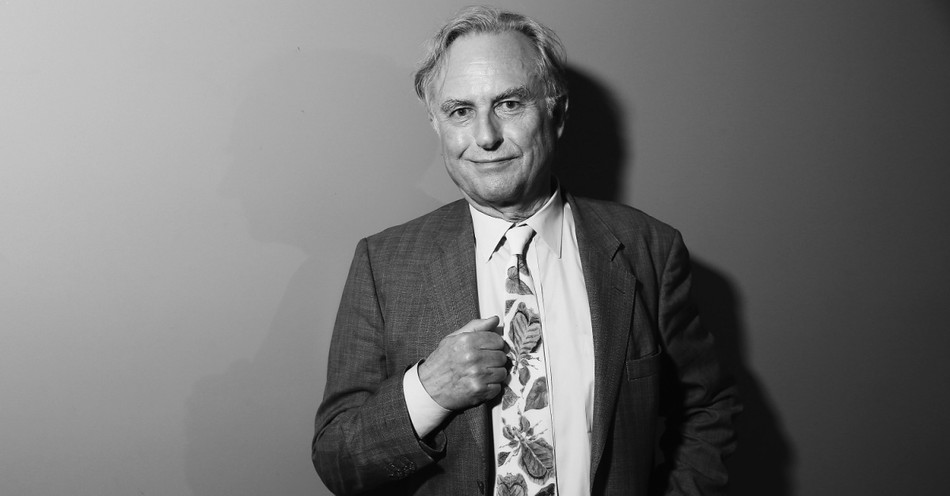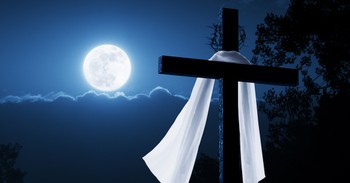Last week, Richard Dawkins, one of the so-called “four horsemen” of the New Atheists and longtime implacable foe of Christianity, made a fascinating confession to host Rachel Johnson of LBCNews. The Oxford biologist and author of The God Delusion, expressed concern after seeing Islamic Ramadan lights on a street that once featured Easter lights.
I call myself a cultural Christian. I’m not a believer, but there’s a distinction between being a believing Christian and being a cultural Christian. …I love hymns and Christmas carols, and I sort of feel at home in the Christian ethos. … We [in the U.K.] are a “Christian country” in that sense.
Dawkins then told Johnson that he’s “horrified” to see Islamic holidays and mosques taking the place of Christian feasts and cathedrals in Europe.
If I had to choose between Christianity and Islam, I’d choose Christianity every single time. It seems to me to be a fundamentally decent religion in a way that I think Islam is not.
A torrent of interesting and often funny reactions followed the interview. Rod Dreher pointed out that for Dawkins to claim he likes cathedrals and Christmas carols but is glad church attendance is declining is like saying he enjoys eating but is glad his country’s farms are closing. Writer Henry George remarked that “Rebuilding [civilization] means accepting the source, not the effect, of Christianity.” He then quoted historian of philosophy Remi Brague who said, “We owe European civilization to people who believed in Christ, not to people who believed in Christianity.” Another posted on X that Dawkins’ desire for a Christian society without allegiance to Christ is a “hydroponic Christian culture that doesn’t actually have its roots down in that dirty soil of actual belief in God.”
RELATED: Atheist Richard Dawkins Says He Identifies as a 'Cultural Christian': 'I Sort of Feel at Home'
Perhaps the best response was from historian Tom Holland, also not a Christian but who has long made the case that Christianity is responsible for the freedoms, science, and belief in human rights that made the West. He has also argued that even militant atheism, enlightenment, and progressive politics are ultimately garbled echoes of a biblical story in which “a people walking in darkness see a great light.” Holland wrote:
[S]ecularism & Dawkins’ own brand of evangelical atheism are both expressions of a specifically Christian culture—as Dawkins himself, sitting on the branch he’s been sawing through and gazing nervously at the ground far below, seems to have begun to realise.
They’re all right, of course. Dawkins’ comments were a tacit admission that, for decades now, he has been wrong to claim that science and secularism are the source of all that’s good in Western culture. In fact, it is the worldview centered on a God who became man and died on a cross because He “so loved the world” that is the source of hospitals, churches, esteem for women and children, human rights, and even the music, art, and culture that Dawkins cherishes. For one of the world’s most outspoken God-haters to realize this is quite remarkable.
Still, there would be none of the fruits of Christianity without its roots, specifically the essential beliefs in God, the Father Almighty, maker of heaven and earth; Jesus Christ, His only begotten Son, our Lord; and the rest. Another Oxford professor, C.S. Lewis pointed this out in the 1940s in The Screwtape Letters. Lewis wrote, “Men or nations who think they can revive the Faith in order to make a good society might just as well think they can use the stairs of Heaven as a short cut to the nearest chemist’s shop.” Lewis knew, better than Dawkins, that God will not be used as a means to an end. He is the end.
Of course, this isn’t the end of Dawkins’ journey. Given the things he’s said lately, Christians should be quicker to pray for him than to say, “I told you so.” Pray that God, in His kindness, would open the eyes of Dawkins as He did for Saul of Tarsus. Perhaps, he too, will be confronted by a Savior who asks, “why are you persecuting me?” Even more, we should pray that this atheist’s candid admissions are a wake-up call to a Western world who wants to feast at Christ’s table without bowing at His feet. The God who raised Jesus from the dead is more than capable of reviving a secular society.
This Breakpoint was co-authored by Shane Morris. For more resources to live like a Christian in this cultural moment, go to breakpoint.org.
RELATED PODCAST:
Image credit: ©Getty Images/Don Arnold/Stringer
John Stonestreet is President of the Colson Center for Christian Worldview, and radio host of BreakPoint, a daily national radio program providing thought-provoking commentaries on current events and life issues from a biblical worldview. John holds degrees from Trinity Evangelical Divinity School (IL) and Bryan College (TN), and is the co-author of Making Sense of Your World: A Biblical Worldview.
The views expressed in this commentary do not necessarily reflect those of CrosswalkHeadlines.
BreakPoint is a program of the Colson Center for Christian Worldview. BreakPoint commentaries offer incisive content people can't find anywhere else; content that cuts through the fog of relativism and the news cycle with truth and compassion. Founded by Chuck Colson (1931 – 2012) in 1991 as a daily radio broadcast, BreakPoint provides a Christian perspective on today's news and trends. Today, you can get it in written and a variety of audio formats: on the web, the radio, or your favorite podcast app on the go.




